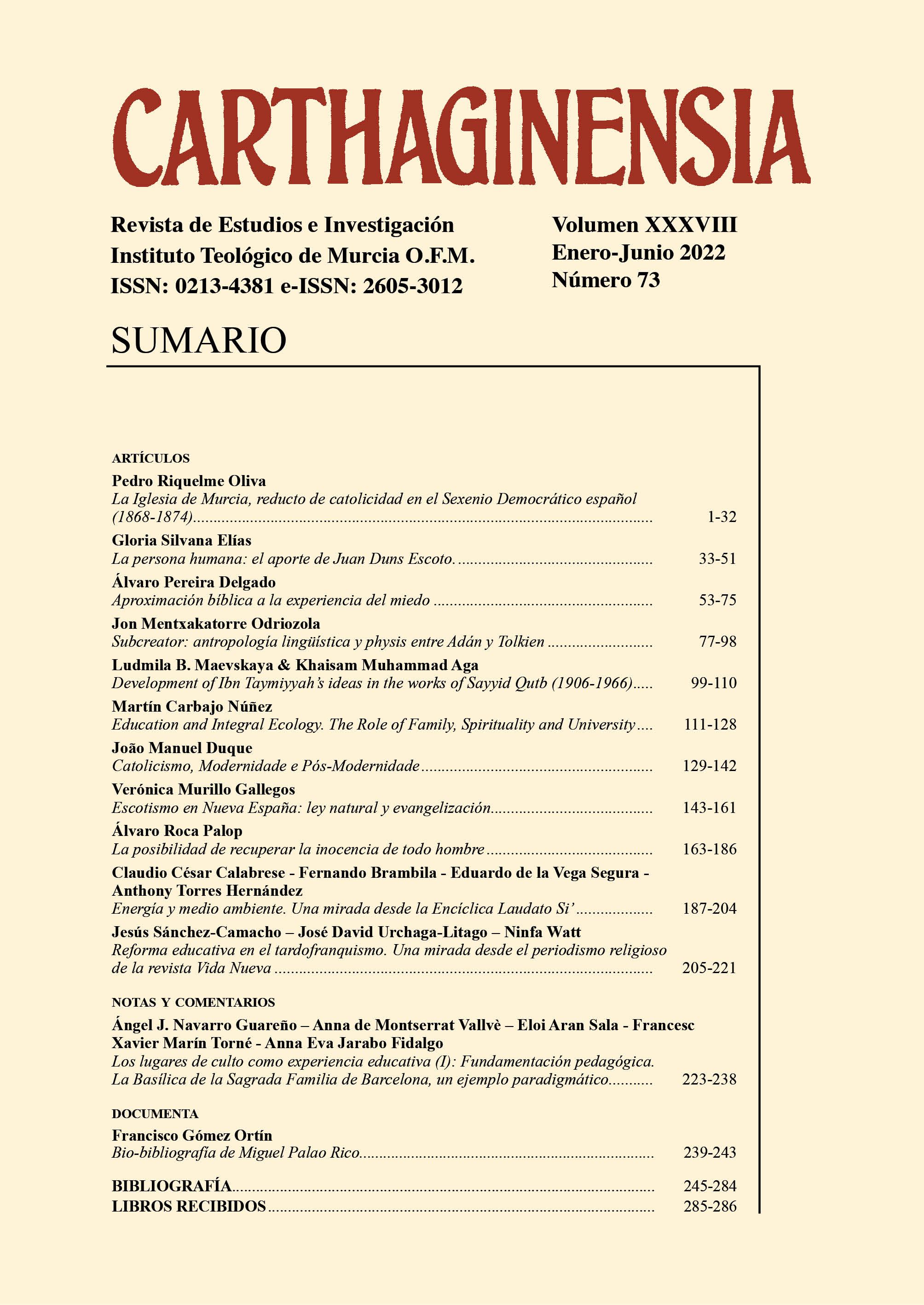Education and Integral Ecology The Role of Family, Spirituality and University
Main Article Content
Abstract
This article asserts the need for education in order to move towards integral ecology and studies the role that the family, spirituality and the university can play in this formative task. The family has the primary right to educate and it is indeed the most important school. Spirituality "can motivate us to a more passionate concern for the protection of our world". The university must also play an important role, harmoniously integrating learning and social service, rather than reducing itself to a merely instrumental and transmitting function. Thus, a new relational paradigm will be possible, one that fosters family relationships and a holistic vision of reality. This urgent need has also been highlighted by the current Covid-19 pandemic.
Downloads
Publication Facts
Reviewer profiles N/A
Author statements
- Academic society
- Instituto Teológico de Murcia OFM
- Publisher
- Instituto Teológico de Murcia OFM
Global Statistics ℹ️
|
491
Views
|
227
Downloads
|
|
718
Total
|
|
Article Details

This work is licensed under a Creative Commons Attribution 3.0 Unported License.
The works published in this journal are subject to the following terms:
1. Carthaginensia retains the patrimonial rights (copyright) of the published works, and favors and allows the reuse of the same under the license of use indicated in the following point.
2. The works are published in the electronic edition of the journal under a Creative Commons By (CC By) License https://creativecommons.org/licenses/by/3.0/es/. They may be copied, used, disseminated, transmitted and publicly exhibited, provided that: i) the authorship and the original source of publication (journal, publisher and URL of the work) are cited; ii) they are not used for commercial purposes; iii) the existence and specifications of this license of use are mentioned.
References
HARARI Y.N., Homo Deus: a brief history of tomorrow, Harvill Secker, London 2015.
RIVOLTELLA P.C., Screen generation. Gli adolescenti e le prospettive dell’educazione nell’età dei media digitali, Vita e Pensiero, Milano 2006.
FREIRE P., Pedagogy of the oppressed, Bloomsbury, New York 2018. DOI: https://doi.org/10.4324/9780429269400-8
CARBAJO NÚÑEZ M., «Franciscan Spirituality and Integral ecology. Relational bases vs the Throwaway culture », in Islamochristiana 43 (2017) 59-78.
DELIO I. - WARNER K.D. - WOOD P., Care for Creation. A Franciscan spirituality of the earth, Franciscan Media, Cincinnati 2007.
ELLIS R. – GOODYEAR P. (ed.), The education ecology of universities, Integrating learning, strategy and the academy, Routledge, New York (NY) 2019. DOI: https://doi.org/10.4324/9781351135863






